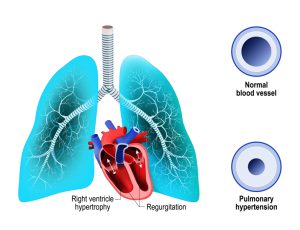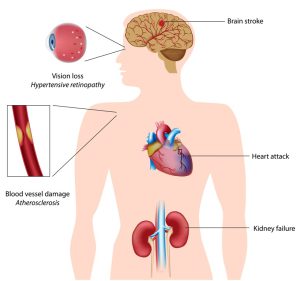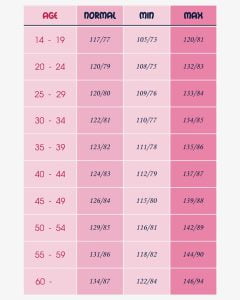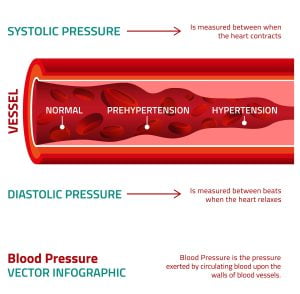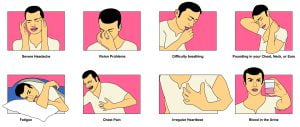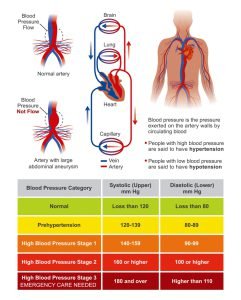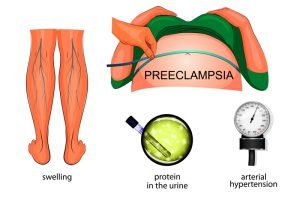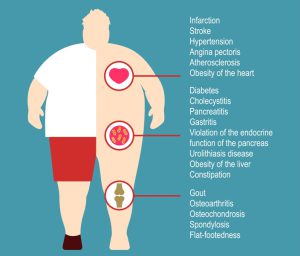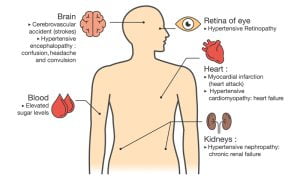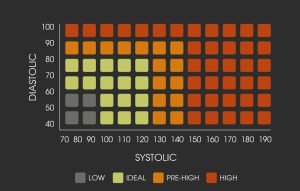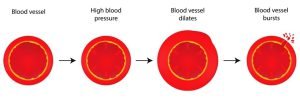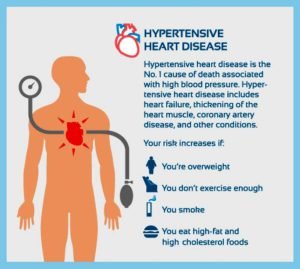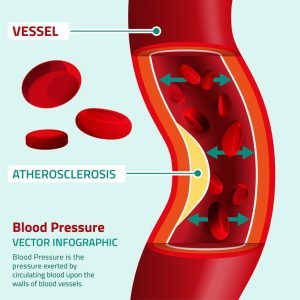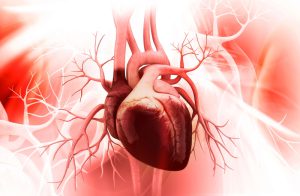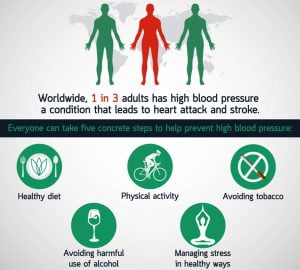Browsing: Hypertension Graphics
Comprehensive Information, Resources, and Support on Hypertension
Pulmonary hypertension is a type of hypertension (high blood pressure) that affects the arteries in your lungs and the right side of your heart. In some cases, tiny arteries in your lungs (pulmonary arterioles) and capillaries become narrowed or blocked.
When blood pressure stays high over time, it can damage the body and cause severe complications.
According to a study, ap to about age 55, women are less likely to have high blood pressure (hypertension) than men. But after that, blood pressure in women tends to rise more sharply than it does in men. Hormones are considered a reason for this.
Mostly, high blood pressure (also called hypertension) shows no symptoms at all in the beginning. This means that people with high blood pressure can get damage to their heart, kidneys, eyes, and circulation without feeling it at all. Symptoms appear after it has caused some damage already.
A healthy blood pressure is 120/80 or less, but the lower you can get it, the better it is.
The symptoms of eclampsia/preeclampsia during pregnancy: swelling of the feet, hypertension and protein leakage in the urine.
The list of possible complications of and disease conditions due to obesity is very long and includes such as cardiovascular problems such as high blood pressure, heart disease, stroke, chronic lower back pain.
The higher your blood pressure and the longer it remains uncontrolled, the greater is the damage. Uncontrolled high blood pressure can cause many diseases and problems such as heart attack, stroke, kidney problems, etc. High blood pressure can cause hardening and thickening of the arteries (a condition called atherosclerosis), which can cause severe complications.
Use this blood pressure chart to learn what your blood pressure numbers mean.
Uncontrolled high blood pressure can damage and weaken your blood vessels, causing them to narrow, rupture or leak. A ruptured aneurysm can be deadly if it’s in one of your major arteries or brain.
The main risk factor for hypertensive heart disease is high blood pressure. The risk is increased if you’re overweight.
Blood pressure (BP) is the pressure of circulating blood on the walls of blood vessels. If your blood pressure remains high, you are likely to develop heart diseases and stroke.
High blood pressure affects one in three Americans. Yet many people with the condition don’t know they have it. It is considered a silent killer. It can lead to stroke and heart attack if not controlled on time.
ADVERTISEMENT




